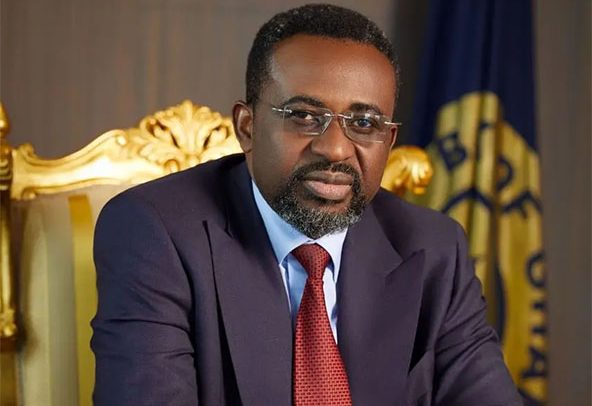Dr. Johnson Asiama
The University of Ghana Business School (UGBS) and the Department of Economics have officially introduced the first Bank of Ghana (BoG) Chair in Finance and Economics to enable the University engage closely with the Bank to understand its operations, and conduct research while bridging the gap between economics and finance for development among others.
Speaking at the launch, the Governor of the Bank of Ghana (BoG), Dr. Johnson Asiama said apart from improving knowledge development, the partnership will also deepen the relationship between academia and the central bank.
The Governor also said that the relationship between the two Institutions was a necessary decision taken by the bank due to the role played by academia in shaping the financial architecture of the country.
He said, “Policy without intellect is blind, and theory without policy is sterile. The partnership between the University of Ghana and the Bank of Ghana, therefore, is not just ceremonial. It is foundational”.
“This Chair will serve as a catalyst for cutting-edge research in inflation dynamics, exchange rate management, digital finance, regulation of virtual assets, and the evolving contours of financial stability,” he said.
He said the chair, Prof. Imhotep Y. P. Alagidede, will serve as a ‘mentoring, inspiration, and critical thought for students across Ghana and Africa’ with a commitment to supporting future economists and policymakers.
The Governor noted that the Bank of Ghana has over the years forged meaningful academic linkages that provided internships for students, guest lectures by central bank officials, research support, and co-hosting policy dialogues which have informed both classroom instruction and macroeconomic policymaking.
Dr. Asiama stated that BoG will launch joint research initiatives in areas such as inflation targeting, exchange rate management, digital finance, regulation of virtual assets, and monetary policy transmission as well as create policy labs and data partnerships that allow faculty and students to work with real-time datasets, contributing meaningfully to the design and calibration of policy.
“The research will also support curriculum development that strengthens training in central banking, risk governance, and macroprudential policy, ensuring that Ghana’s universities become the cradle of future-ready economists and policymakers. This will contribute meaningfully to the design and caliberation of policy,” he stated.
The Governor also announced a new initiative in collaboration with the Chair dubbed, the “Governor’s Future Leaders Fellowship” to identify high-performing university graduates with exceptional potential in economics, finance, and public policy.
He added that the young leaders will be offered structured pathways to top global institutions, through scholarships, internships, and policy immersion opportunities.
By Ebenezer K. Amponsah


